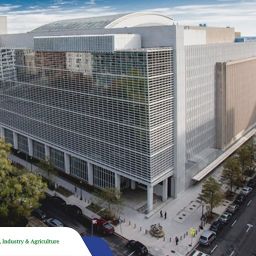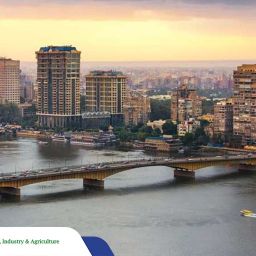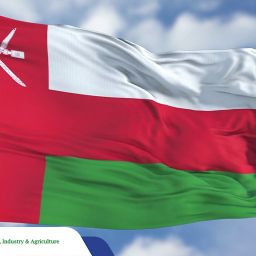Date:May 26, 2019
Sector: Economy
Country:Egypt
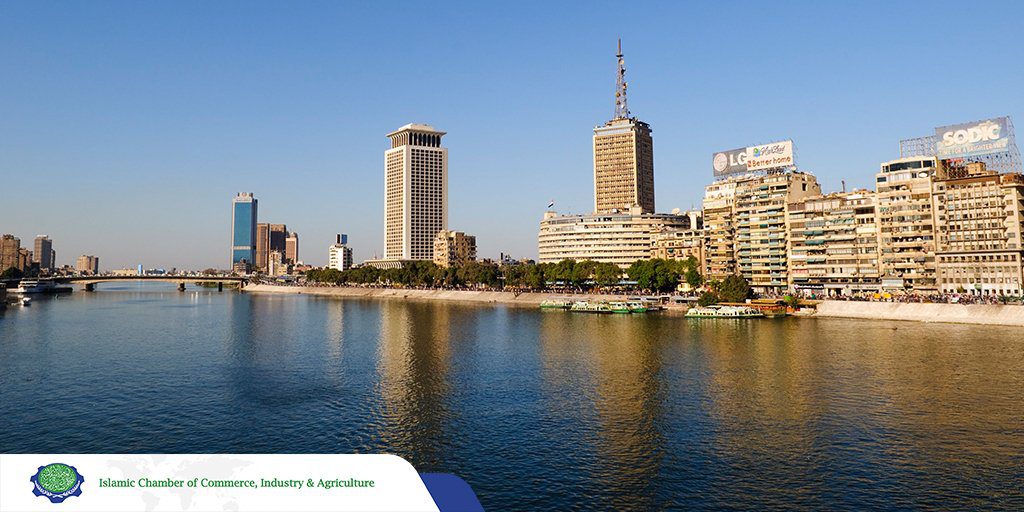
For over 15 years African Business magazine has been running its ranking of Africa’s Top 250 Companies, taking the top listed companies from national and regional stock exchanges across Africa. Many of the companies listed in this year’s survey have seen huge gains compared to last year. See who’s moved up and down our rankings, as well as who features from your country and how they fare against their peers elsewhere
Developed countries are racing each other to vaccinate their populations and open their economies, delighting global equity investors. But the Covid-19 pandemic continues to affect African economies and lives, causing deeper and longer-lasting economic damage. It has already plunged millions of Africans into poverty, knocking human development back by a decade.
In turbulent times, the Top 250 Companies survey shows how well Africa’s leading businesses have been able to weather the storms. As usual, companies are ranked by their market capitalisation, the value of all their shares listed for trading on a stock exchange. Many have seen huge gains compared to last year.
This year’s Top 250 includes companies from 18 countries listed on national and regional stock exchanges across Africa.
Valuations of Africa’s top companies soar
This year there is more change to the Top Companies survey as we bring a clearer focus on “African” companies. We are working to exclude companies that have less than 10% of their sales, production or employment in Africa. For more details, see our methodology below.
For example, we removed Prosus, last year’s top-ranked company (#1) and Europe’s largest listed consumer internet company, and third-ranked Compagnie Financière Richemont (#3), a luxury goods retailer.
Despite lopping off some $243bn through this drastic pruning, the total market capitalisation of all 250 firms on the list this year is nearly $710bn, up a massive 69% on the comparative value for these firms last year, and also up 19% on the unpruned $598bn market capitalisation of the Top 250 Companies in 2020.
Some of this is due to dynamic and skilful management, with CEOs able to flourish in unpredictable frontier economies already used to navigating political and economic uncertainties before the pandemic struck.
For example, Africa’s banks, securities exchanges and other financial institutions managed to transform to working from home in lockdowns, almost without missing a beat. Many are accelerating digitisation, promising low-cost ways to reach untapped markets.
However, some of the gains are to do with vagaries of timing, since figures for the survey are set for 31 March, and in 2020 this was only a few days after stock markets crashed worldwide before later rallying from the low base.
Looking at the share index charts for leading African exchanges (the market capitalisations of the leading companies are often a large part of the index and closely correlated to the indexes), almost all fell off a cliff in March 2020. Last year’s survey was dated 9 April, aiming to remove some of the volatility, but share prices have climbed dramatically since 31 March 2020.
Some African stock markets prices followed world markets in bouncing back surprisingly quickly. On the liquid South African market, the FTSE/JSE All Share Index fell heavily in March 2020 and climbed fast like many other world markets in April 2020.
Others remained on the new lower level for the rest of the year, for example the Stock Exchange of Mauritius, SEMDEX, is still to catch up with the global recovery despite the forecast economic growth.
Recovery was slower for the Nigerian Stock Exchange Main Board Index, which only picked up dramatically towards the end of the year, partly boosted by improving economic prospects.
This year’s total is close to the total $748bn for 2019 but far below total market capitalisation of $887bn in March 2018 and the peak value of $948bn in 2015, during the heady days of “Africa Rising”.
This year, financial services feature strongly in the tables, with a 24% share of the total value. Consumer goods and mining-related companies come second, each with a 22% share.
A strong market rise and strengthening currency means that South African firms have strengthened their domination of the ranking.
Fast to lock down, slow to vaccinate
At time of writing, herd immunity is already in sight for some developed countries leading the vaccine rollout, promising an eventual return to economic normality. For poorer countries, the first Covax vaccination programme international delivery was made to Ghana on 24 February 2021 and it had reached 100 economies by early April.
The programme is aiming to deliver 2bn doses by the end of 2021 and get 20% of the world’s poorest vaccinated, which appears wildly ambitious. There are dangers for developed countries too in slow vaccinations in poor nations, as new mutations of the virus could emerge.
Many African countries had good systems in place from previous health scares and reacted quickly to impose restrictions as soon as a case of Covid-19 was detected, and in some cases closed borders. This cut the spread of infections compared to other regions of the world. However, stringent domestic lockdowns were less effective at slowing the virus internally, probably because for many informal-sector workers returning to work was an absolute necessity despite the risks.
The IMF says the economic impact will last longer than the health impact. Small and medium enterprises have been hit harder than the larger and better funded companies. Some companies may be so badly affected that they never recover, but limp forward with no growth as “zombie firms”, sucking in credit to keep moving and incapable of efficiency and innovation.
Africa’s economy, measured by gross domestic product (GDP), contracted by 2.1% in 2020, the first recession in 25 years.
Some 30m Africans are estimated to have fallen into poverty in 2020, with women worst affected, and another 39m will join them in 2021 if support is not provided (poverty is defined as earning less than $1.90 a day).
They will bring the total to 465m, or one in three Africans, in poverty, according to the African Economic Outlook 2021 published by the African Development Bank (AfDB) in March 2021. Worst affected are those with less education, few assets and working in the informal sector.
Tourism, which provided 24m African jobs in 2018, all but disappeared in the first half of 2020 and only restarted slowly after August, slamming economies such as Mauritius and Kenya, where it contributes significantly to jobs and the economy.
Oil-exporting countries suffered after oil prices plunged in the second quarter of 2020, and other economies dependent on resources were hit by low prices, which have since started to recover.
In the medium term, average debt to GDP is likely to increase by 10 to 15%. Debt distress could constrain government finances for years and mean vital support programmes are less available than they were in developed countries. That will lead to major cuts in critical health and education investment and spending by governments, businesses and households.
Fiscal deficits across Africa have doubled in 2020 to 8.4% of GDP, a historic high. Declining currencies added to the woes and by December 2020, six countries were in debt distress and 14 were rated at high risk of distress.
Higher rates on 10-year US Treasury Bonds – the world’s benchmark interest rate – usually herald longer debt distress for poor countries. The US yield was 1.7% at end March 2021 compared to 0.6% a year earlier after rapid falls from 1.8% at the start of 2020.
AfDB President Akinwumi Adesina warns that “to avoid another ‘lost decade’ and to build resilient economies, we need to address Africa’s debt and development finance challenges, in partnership with the international community”. He says: “the time for one last debt relief for Africa is now”, provided governments play their part by improving governance and stopping “leakages”.
Many firms were reassessing economic prospects and whether they have sufficient cash resources for their own survival and slammed the brakes on investment projects, including foreign direct investment (FDI) flows that are vital to Africa.
Portfolio investment inflows reversed from a $23bn net inflow in 2019 to a $27bn net outflow in 2020. This and other disruptions to foreign fund flows such as remittances (down from $86bn in 2019 to $78bn in 2020) and aid have meant that many African currencies also had a torrid year in 2020, particularly in the frontier economies.
The AfDB created the world’s largest US dollar-denominated social bond with its $3bn Fight COVID-19 social bond, listed on the London and Luxembourg stock exchanges and Nasdaq.
Adesina sees signs of hope: “African countries will need an all-out effort to harness digital technologies and an active promotion of free and fair competition to re-ignite growth, leveraging the African Continental Free Trade Area.”
The world’s biggest free trade area by number of countries participating was officially launched on 1 January and offers Africa’s leading businesses huge potential for growth.
Growth is projected at 3.4% in 2021 (compared to an IMF forecast of 4% recovery in 2021, published in April 2020), provided that tourism starts again, commodity prices climb and restrictions are ended. However, the bounce-back is far less than many countries in other regions are enjoying and Africa’s ongoing high population growth means per capita incomes will have fallen significantly.
Africa’s world-beating stock markets
For the year to December 2020, Nigeria was hailed by Bloomberg as “the world’s best performing” stock exchange, with its All Share Index (ASI) up 50% for NGN investors and over 40% for US dollar investors. The main index retreated slightly in the first quarter of 2021.
However, research house African Markets says the “best-performing” crown rightfully belongs to Zimbabwe. In 2020 the ZSE ASI index had a lift-off year, up 1,045.8% for investors in Zimbabwean dollars (ZWL) and up 135% in US dollars. It rose another 70% for ZWL and 65% for USD investors over three months to March 2021.
In both exchanges, some gains were due to undervalued companies. Investment in Nigerian shares has been driven by local institutions hunting for yield as rates on debt fell below 1%. Share prices for the biggest Nigerian companies soared and telco Airtel Africa (which has also had a strong year on the London Stock Exchange) and BUA Cement climbed the Top Companies rankings while Dangote Cement and MTN Nigeria also grew in value.
The impact was particularly severe in Zimbabwe, as investors worried about exchange rates and inflation. Many – including black market currency dealers – used the comparative price of Old Mutual shares on the London Stock Exchange and the ZSE as an unofficial indicator of the real value of the fourth Zimbabwe dollar (ZWL).
The “Old Mutual Implied Rate” (OMIR) was at $1=ZWL120 while the official rate was still held at $1=ZWL25 and inflation soared – according to the Reserve Bank of Zimbabwe it peaked at 837% for the year to July 2020.
Authorities tried to hit the symptom rather than the cause by closing the ZSE for trading from 26 June to 3 August 2020. After a brief sell-off of shares when the bourse reopened, the trend resumed. By year-end the main index was up 135% at the official rate of $1=ZWL81.79. At the time of writing the rate cited by the Reserve Bank of Zimbabwe was around $1=ZWL84) and unofficial rates around $1= ZWL115-125.
The huge climb in share prices on the ZSE has had its impact on the Top Companies rankings, where market capitalisation is cited at official FX rates. According to African Markets, commenting on calendar year performance: “Top performers include the financial services group CBZ (+12,093.4%), which overtook the beverage company Delta Corporation as the most valued company on the ZSE, Masimba Holdings (+6,533.2%), Cafca (+4,950.0%), Hippo Valley Estates (+4,524.2%), and ART Corporation (+3,291.6%).”
CBZ bursts in at #147 on the Top 250 Companies, its market capitalisation up from $42m in 2020 to $570m in 2021. By March, Delta had regained its crown as biggest Zimbabwean company, just ahead of Econet Wireless, at #130 and #131 on the list respectively, but Zimbabwe had several other new entrants that might not be so high with a different USD/ZWL exchange rate.
South Africa’s market tends to be one of the most liquid developing markets in the world and often shows the sharpest and quickest responses on share prices, bond yields and currency values as world investors try to exit foreign holdings they regard as risky.
Over the year to 31 March, the period used for comparison in the Top Companies survey, the FTSE/JSE Africa All Share Index is up nearly 55%, and the gain to US dollar investors (share prices in the survey are rebased in US dollars) is boosted by a 20% gain in the ZAR-USD, strengthening from $1=ZAR17.78 to $1=14.76 and reversing the 19% decline between 2019 and 2020.




